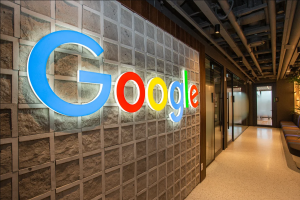Net Neutrality Advocates Complain New Rules Under Vote Are Broken
![]() Right now the big row about the net neutrality vote in front of the FCC happens to be about how many groups feel that the rules being considered are broken and don’t go far enough to protect an open Internet. Most proponents advocate a reclassification of broadband as regulated common-carriers much the same way telephone networks are. The new rules do not do this; instead they enforce a sort of regulation against “unreasonable discrimination” for over-the-wire broadband providers but do nothing to wireless providers. We’ve already seen fears of this when Google and Verizon started eyeing each other and this the possible neutrality of wireless networks a move that could affect both the cloud-computing industry and make it difficult for smaller wireless providers to compete.
Right now the big row about the net neutrality vote in front of the FCC happens to be about how many groups feel that the rules being considered are broken and don’t go far enough to protect an open Internet. Most proponents advocate a reclassification of broadband as regulated common-carriers much the same way telephone networks are. The new rules do not do this; instead they enforce a sort of regulation against “unreasonable discrimination” for over-the-wire broadband providers but do nothing to wireless providers. We’ve already seen fears of this when Google and Verizon started eyeing each other and this the possible neutrality of wireless networks a move that could affect both the cloud-computing industry and make it difficult for smaller wireless providers to compete.
Computerworld brings us some critical analysis and numerous speeches by different sides of this upcoming issue,
But Copps on Monday said he planned to vote for Genachowski’s proposal, even though it would not reclassify broadband as the chairman had earlier advocated. Copps suggested there have been changes to the proposal since Genachowski first announced it earlier this month.
"The item we will vote on tomorrow is not the one I would have crafted," he said in a statement. "But I believe we have been able to make the current iteration better than what was originally circulated. If vigilantly and vigorously implemented by the commission — and if upheld by the courts — it could represent an important milestone in the ongoing struggle to safeguard the awesome opportunity-creating power of the open Internet."
Copps said he cannot vote "wholeheartedly" for the proposal, but he would not block it, either.
Groups for the bill argue that it’s not perfect, but it’s better than absolutely nothing. It does include language to prevent wired providers from discriminating over traffic content and would drive forward the current rules. Those against the new regulations, however, fear that where it doesn’t go far enough it leaves open huge gaps for obvious violations to slip through.
Copps is supporting a "fake" net neutrality proposal, said Free Press, a media reform group that has pushed for strong net neutrality rules. Free Press and other net neutrality advocates have criticized the proposal for treating mobile broadband differently than wired broadband and for exempting managed services from net neutrality rules.
“We are deeply disappointed that this commission appears to be moving forward with deeply flawed rules that don’t live up to the promises of the president or the FCC chairman to protect the free and open Internet," Craig Aaron, Free Press’ managing director, said in a statement. "These rules appear to be flush with giant loopholes, and the FCC chairman seems far more concerned with winning the endorsement of AT&T and the cable lobbyists than with listening to the millions of Americans who have pleaded with him to fix his proposal."
It’s hard to call these regulations “fake” on their face, but it is obvious that they’re deeply flawed in that they view wireless broadband as somehow instrumentally different than wired broadband. This view seems somewhat silly when net neutrality is viewed as positing that carriers should be traffic content agnostic and act as common-carriers; it’s the activity of the stream (i.e. the mechanics: does it burst send with most of the bandwidth used early on or is it slow and steady?) and not what the stream contains. Wireless may permit different mechanics, but from a protocol level there’s no difference between a very large video game file and a streaming movie.
It’s hard to really argue against regulation, however apparently broken, but there’s a great deal of different chips on the table here and this article doesn’t address what the industry itself thinks about the deal. The Computerworld article does cover what advocacy groups think and what the politicians think, but what does Google, Verizon, AT&T, Comcast, etc. think about how they should treat traffic from competitors and are they concerned that what they currently do might be viewed as “unreasonable discrimination” against particular types of traffic?
There’s still a lot of other facets of this issue to argue.
No matter which way the vote goes we’re going to be seeing a lot of that upcoming. If it wins we’ll have these advocacy groups fighting to get it fixed, shore up those holes, and move forward; if it fails, we’ll see politicians noting that, indeed it was broken, let’s go back to the drawing board and bring back a resolution more people can agree on.
A message from John Furrier, co-founder of SiliconANGLE:
Your vote of support is important to us and it helps us keep the content FREE.
One click below supports our mission to provide free, deep, and relevant content.
Join our community on YouTube
Join the community that includes more than 15,000 #CubeAlumni experts, including Amazon.com CEO Andy Jassy, Dell Technologies founder and CEO Michael Dell, Intel CEO Pat Gelsinger, and many more luminaries and experts.
THANK YOU













